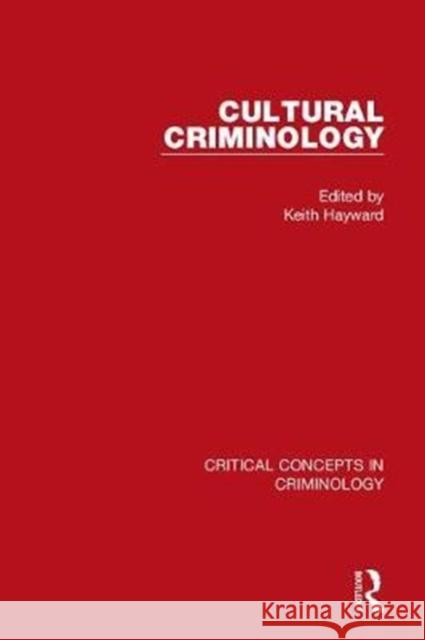Cultural Criminology » książka
Cultural Criminology
ISBN-13: 9780415812887 / Angielski / Twarda / 2017 / 1754 str.
Cultural Criminology is a theoretical, methodological, and interventionist approach to the study of crime and deviance that places criminality and its control in the context of culture; that is, it views crime and the agencies and institutions of crime control as cultural products--as creative constructs. Cultural criminologists focus relentlessly on the continuous generation of meaning around interaction: rules created, rules broken, a constant interplay of moral entrepreneurship, political innovation, and transgression. Indeed, Cultural Criminology is now a well-established--if heterogeneous and contentious--field of study. The work of cultural criminologists supports numerous international journals, regional organizations, and global conferences. As the field continues to flourish as never before, this new title from Routledge, edited by a distinguished scholar with an international reputation, meets the need for an authoritative, one-stop reference work to make sense of the wide range of approaches, theories, and concepts that have informed Cultural Criminology. In four volumes, the collection assembles the best and most influential contributions made by cultural criminologists from around the world. The gathered works cover not only the history and antecedents of Cultural Criminology and cutting-edge theories, but also explore a variety of research methods used by leading scholars in the field and the rich data generated by their rigorous empirical work. With a full index, together with a comprehensive introduction, newly written by the editor, which places the collected material in its historical and intellectual context, Cultural Criminology is an essential work of reference. The collection will be particularly useful as a database allowing scattered and often fugitive material to be easily located. It will also be welcomed as a crucial tool permitting rapid access to less familiar--and sometimes overlooked--texts. For researchers, students, and policy-makers, it is an essential one-stop research and pedagogic resource.











